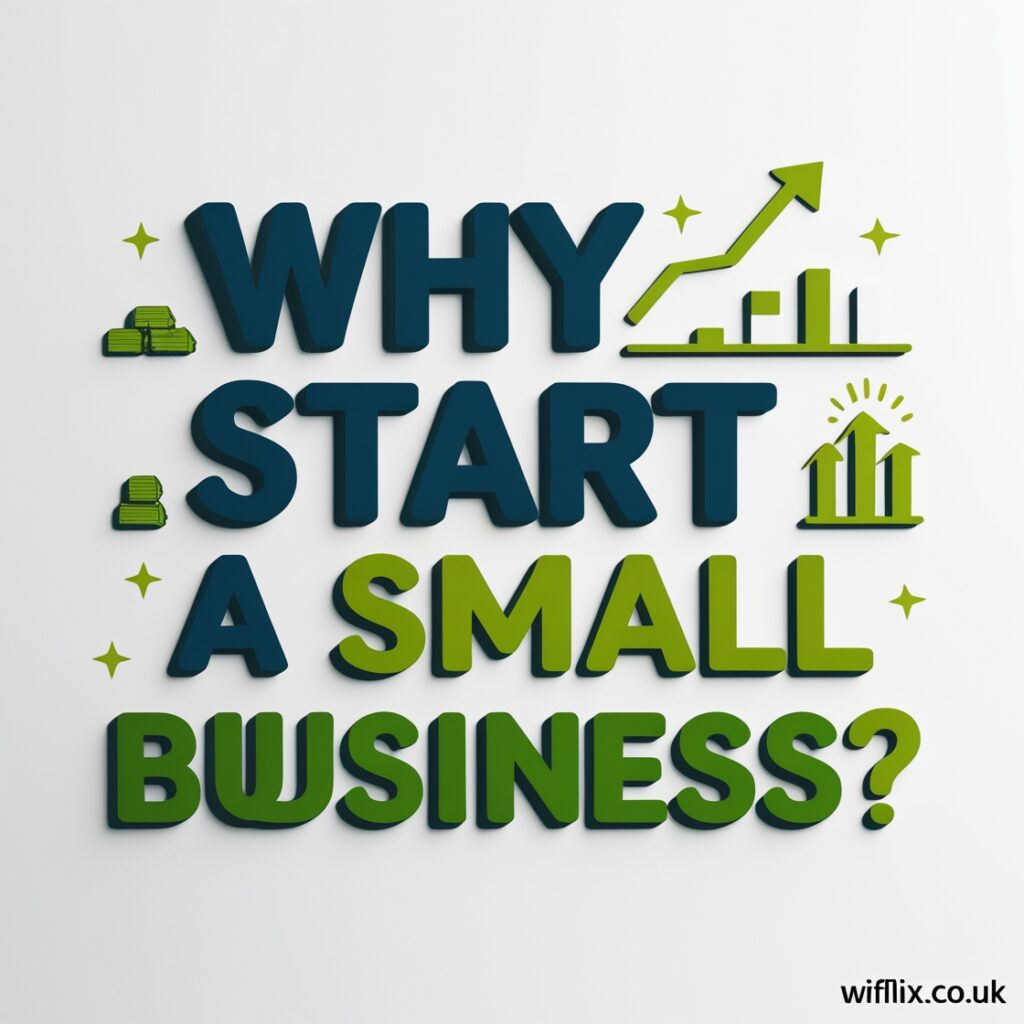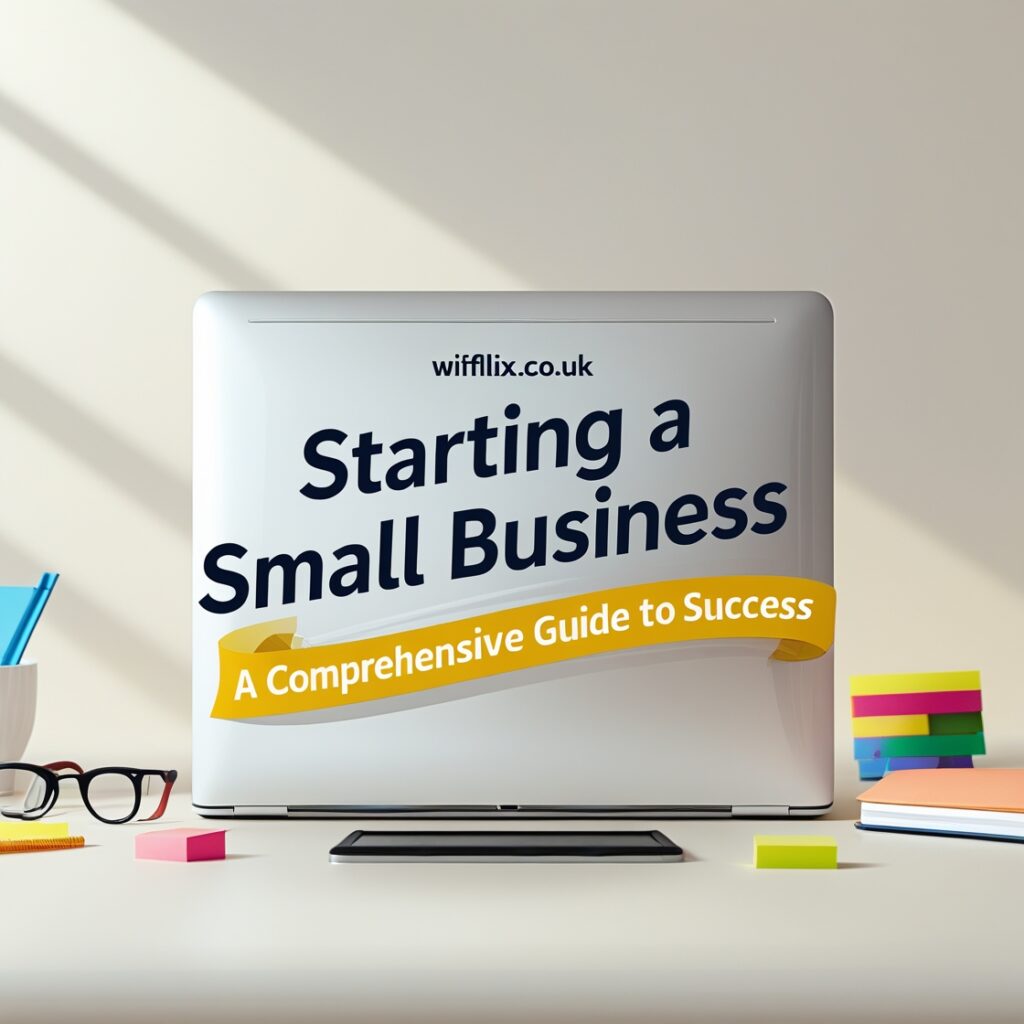Starting a Small Business is a life-changing decision that can provide financial freedom, creative control, and personal fulfillment. Whether you’re looking to escape the traditional 9-to-5 job, pursue a passion, or build wealth, owning a small business offers numerous benefits. However, success requires careful planning, strategy, and dedication. This guide will walk you through everything you need to know about Starting a Small Business, from ideation to scaling.
Why Start a Small Business?

The appeal of Starting a Small Business is undeniable. Here are some of the top reasons why people take the leap into entrepreneurship:
- Financial Independence – Owning a business allows you to control your income potential rather than relying on a fixed salary.
- Flexible Schedule – Work on your terms and create a schedule that suits your lifestyle.
- Creative Freedom – Bring your ideas to life without the constraints of corporate policies.
- Personal Growth – Running a business challenges you to develop new skills, from marketing to leadership.
While the benefits are compelling, it’s essential to approach business ownership with a solid plan. Let’s dive into the steps necessary for Starting a Small Business successfully.
Finding a Profitable Business Idea
The foundation of any successful business is a great idea. However, not all ideas translate into profitable ventures. Consider these factors when brainstorming:
How to Choose the Right Business Idea
- Identify Market Needs – Look for problems that need solving. Conduct surveys, research online forums, and analyze competitors.
- Leverage Your Skills & Passion – Align your business idea with your strengths and interests to sustain long-term motivation.
- Evaluate Market Trends – Use tools like Google Trends, industry reports, and competitor analysis to assess demand.
Some trending small business ideas include:
- E-commerce stores (handmade products, dropshipping, or niche markets)
- Freelance services (graphic design, content writing, consulting)
- Digital marketing agencies
- Subscription box businesses
- Personal coaching (fitness, career, life coaching)
Once you have a viable idea, validate it by gathering feedback from potential customers.
Writing a Business Plan
A business plan is essential for setting clear goals, attracting investors, and staying on track. It should include the following sections:
Key Elements of a Business Plan
- Executive Summary – A brief review of your enterprise, along with the assignment announcement and objectives.
- Market Analysis – Research competitors, target audience, and industry trends.
- Products/Services – A detailed description of what you will offer.
- Marketing Strategy – How you intend to draw and retain clients.
- Financial Plan – Projected income, expenses, and funding sources.
- Operations Plan – Logistics, suppliers, and day-to-day operations.
A well-crafted business plan acts as a roadmap, guiding your decisions and growth strategies.
Registering and Legalizing Your Business

To operate legally, you need to register your business and comply with regulations. Here’s how:
Steps to Register Your Business
- Choose a Business Structure – Sole proprietorship, LLC, or corporation? Each has its very own tax implications and liability protections.
- Register Your Business Name – Choose a unique name and check availability through your local business registry.
- Obtain Licenses and Permits – Requirements vary by industry and place. Research what applies to you.
- Get an EIN (Employer Identification Number) – Required for tax purposes if you hire employees.
Following legal guidelines from the start prevents future complications and ensures a smooth operation.
Managing Finances and Funding Options
Money management is crucial in Starting a Small Business. Proper financial planning keeps your business sustainable.
Budgeting and Financial Planning
- Open a Business Bank Account – Keep non-public and business finances separate.
- Track Expenses and Revenue – Use accounting software like QuickBooks or FreshBooks.
- Plan for Taxes – Consult with an accountant to understand tax obligations.
Funding Your Business
If you need capital, consider these options:
- Bootstrapping – Use non-public savings to fund your commercial enterprise.
- Small Business Loans – Banks and online lenders offer various financing options.
- Grants and Government Programs – Look for funding opportunities in your industry.
- Angel Investors or Venture Capital – Ideal for scalable business models.
- Crowdfunding – Platforms like Kickstarter can help raise capital from the public.
A well-managed budget ensures financial stability and long-term success.
Building an Online Presence
In nowadays’s virtual world, having a web presence is important for success.
Creating a Business Website
- Choose a Domain Name – A short, memorable name that represents your brand.
- Use an SEO-Friendly Platform – WordPress, Shopify, or Wix are great options.
- Optimize for SEO – Use keywords like “Starting a Small Business” in your content.
- Include Essential Pages – About Us, Contact, Services, Blog, and Testimonials.
Utilizing Social Media and Digital Marketing
- Social Media – Engage with customers on platforms like Facebook, Instagram, and LinkedIn.
- Content Marketing – Publish blogs, videos, and infographics to attract visitors.
- Email Marketing – Build a subscriber list for promotions and updates.
- Paid Advertising – Use Google Ads and social media ads to increase reach.
A strong online presence boosts brand awareness and drives sales.
Launching and Growing Your Business

Once the entirety is set up, it’s time to release!
Effective Strategies for Growth
- Offer Excellent Customer Service – Build accept as true with and loyalty.
- Monitor Business Performance – Use analytics tools to track progress.
- Adapt to Market Trends – Stay flexible and innovate when needed.
- Network with Other Entrepreneurs – Join business groups and attend industry events.
- Expand Your Offerings – Introduce new products or services basics on customer demand.
Scaling your business requires continuous effort, but with persistence, you can achieve long-term success.
Conclusion
Starting a Small Business is an thrilling yet difficult journey.. With the right idea, solid planning, and strategic execution, you can build a successful and sustainable business. Follow these steps to turn your entrepreneurial dream into reality and enjoy the rewards of being your own boss.
If you’re ready to take the plunge, start planning today and make your business vision come to life!
Would you like further guidance on any specific aspect of Starting a Small Business?
